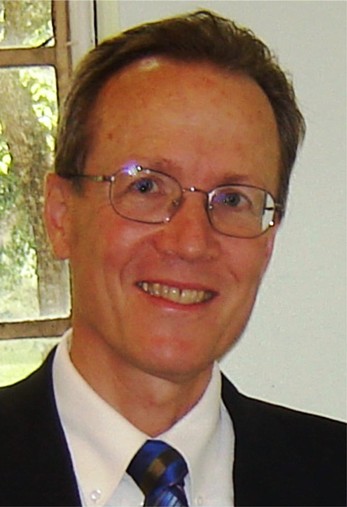![]()
The Words of the Hendricks Family
![]()
|
|
The Words of the Hendricks Family |
|
President's Report, September, 2006
Tyler Hendricks
September 2006

Ministry, Ecumenism and Scholarship Toward a Global Family
The Path Toward Substantial Accomplishments
The Unification Theological Seminary is in a unique position to achieve excellence in three major areas: ecumenism, church development, and the intellectual articulation of Unification theology.
Ecumenical excellence entails the Unification theological vision gaining improved articulation and Unification religious and educational institutions participating more fully in their mainstream peer communities. This will happen as we address long-term mission, vision, stability and integrity.
This we are doing; for example, the D. Min. program, 2005-06. We succeeded on the basis of a solid business plan and strong personal relations with the SED and seminary professionals on the site team, based upon Dr. Kathy Winings’s involvement in professional associations. This is a paradigm for the way the Unification Church can gain acceptance in America: professional competency and building relationship through participation in public, voluntary associations as peers.
Professional competency means we create an outstanding school for preparing religious educators and ministers of all kinds. Substantial success will come when we demonstrate that on the basis of our Founder and theology we can create and sustain a great school that produces great ministers and that we can congregate and work with other schools, their teachers, administrators and leaders.
Rev. Marilyn Morris, the first Unificationist APC certified chaplain, put it this way: "a [Unification Church] letter endorsing and commissioning me to this profession was absolutely essential. The Association of Professional Chaplains considers this component seriously and they will not certify a chaplain without it. In this way, they regarded our church as a denomination among its peers. Since all other denominations are expected to ordain, or at least endorse and commission their clergy, they made no exception for our church. This is how it should be as we enter into fuller relationships with Christian and other established faith groups."
UTS strives to excel at professional, mission-driven, cost-effective, sustainable, brand-identity proud seminary education. To gain mainstream acceptance, UTS needs to graduate great ministers and educators. We need to chart paths beyond religious boundaries. We need our professors publishing and participating in professional associations; we need our administrators working at the cutting edge of their fields. We need a fine facility with cutting-edge teaching technologies.
The Seminary offers an environment for disciplined exploration of the Unification worldview. UTS professors should be at the forefront of the global movement in the articulation of Unification theology, philosophy and social theory. The movement expects, and is in dire need of, material of intellectual excellence, including position papers on subjects of current concern to society, in particular forging new paths in the arena of inter-religious relations and peace, a formal elucidation of the rules, rites and regula of our faith, educational materials, curricula, scholarly exposition of Unification theology and philosophy, and exploration of Reverend Moon’s corpus of speeches.
UTS has been contributing in this area through its Journal of Unification Studies, published annually. We are striving to have the faculty members publish, speak, conference and lead far more effectively in this area. UTS also provides an environment for scholarly and reflective dialogue. A seminary campus is a unique setting that offers important opportunities to the Unification movement. It houses a unique collection of intellectual leaders of the Unification tradition as well as informed, sympathetic and astute scholars from other traditions. It provides a "neutral" venue for dialogue, conferencing, reflection and retreats. Already UTS houses one such body, The Center for Education at UTS. In addition we house offices of relief organizations (IRFF), an organization for martial arts and education (Tongil-Moodo), and a research organization (the Encyclopedia Project).UTS can employ visiting scholars or fellows connected to an Institute or to the Seminary. Such individuals offer recogntion, intellectual leadership and magnetic appeal to students and other scholars or religious leaders. In addition, UTS can offer credit-worthy intensives in partnership with an Institute or Center.
The UTS campus offers space for facilities that support the variety of educational and spiritual activities of the school and its various Institutes and Fellows. Some items on the following list are in place; others have been discussed: nature trails, The Labyrinth and Peace Garden, scenic meditation gardens, a Yurt, an aquaculture operation (fish farm), a hydroponics operation (farming connected with the fish farm), a community garden (growing produce), river and pond fishing facilities, ice-boating, a rope course, the Prayer Grotto, and statuary, art, artifacts of various traditions. Together with an excellent library, wireless Internet access and steadily improving residential, dining, classroom, athletic, performance and conferencing space, UTS is a vital location.
We invite alumni, friends, institutional partners and, most of all, our students and prospective students, to participate in, to partner with, and to become part of, UTS.
Gratefully,
Tyler Hendricks
Download entire page and pages related to it in ZIP format
Table of Contents
Copyright Information
Tparents Home